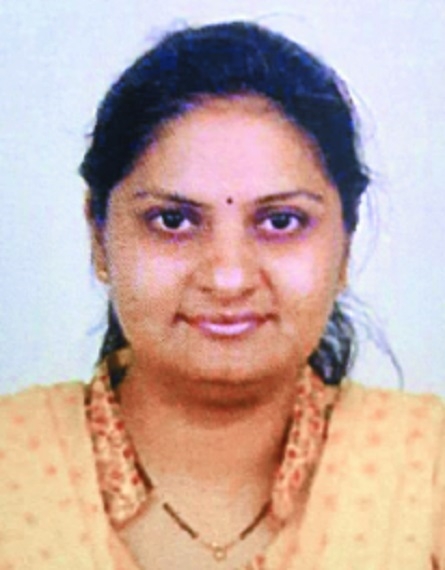Dr Palsokar suggests 3-tier model to make pharmacy students more competent
| Date :05-Feb-2020 |

Dr Gouri Palsokar
By Rajendra Diwe :
Indian pharmaceutical industry is the fastest growing industry across the world. The industry is producing a good quality and low cost generic drugs and supplying to entire world including developed countries. There are number of colleges and institutions across the country producing thousands of pharmacy graduates and post graduates. Though there is an institutional growth witnessed in last 40 years, the quality, standard, competency, employability and knowledge of these graduates and post graduates are always questioned by industrial and regulatory sector from time to time.
As a result many graduates and post graduates of pharmaceutical sciences are not getting good jobs and the industry is not getting competent candidates for required jobs. Dr Gouri Misar-Palsokar, daughter of Dr K G Misar, former Head of the Department of Mass Communications, RTM Nagpur university has tried to address the gap between industry and academia and suggested some recommendations to bridge the same. Dr Gouri had recently awarded a doctorate degree (PhD) by RTM Nagpur University for her research titled “Studies on Relevance of Post Graduate Courses in Pharmaceutical Sciences with Regard to the responsibilities to be discharged in the employment.”
Dr Gauri has suggested a comprehensive three-tier Model for setting-up institutions offering post-graduate courses in pharmaceutical sciences. She feels that the proposed model should be implemented on a nation-wide basis and monitored by a national level regulatory body comprising of industry representatives and academicians of high repute. Talking to The Hitavada, Dr Gouri said, “The model has been proposed to meet the expectations of all the stakeholders of pharmaceutical education such as students, faculty, industry professionals, hospital pharmacists, pharmacists working in food and drug administration, pharmacists planning to work abroad, regulatory bodies and other relevant areas of employment for post-graduates in pharmaceutical sciences.
The model has been proposed specifically to addresses the gap that exists between the industry and academia.” “The research has helped me to realise the issue of a huge gap existing in between industry and academia. The industrial personnel have questioned about the quality and standard of pharmaceutical education in the country as they were not getting suitable or competent candidates to work on specific tasks. The academicians were seen satisfied with the course, curriculum and standard of the education,” she added. Explaining about the parameters considered for identifying specific gaps, Dr Gouri added, “The responses on the basis of six major parameters were collected. They include; Course curriculum; Infrastructure; Faculty skills; Participation of industry in various academic activities; Employability parameters and others.”
Dr Gouri’s three tier model is based on three pillars of educational setup. They include, Teaching Methodologies; Designing curriculum and delivery and Institutional setup. Dr Gouri elaborated, “In India, setting up an educational institution requires compliance of various norms laid down by various regulatory bodies. For setting up institutions offering post- graduate courses in pharmaceutical sciences, compliance of norms laid down by various statutory bodies like AICTE and PCI are required. These norms however only address infrastructure issues and teaching man-power requirement but are not too focused on the outcome.
In such a scenario if the industry comes forward and set-up an educational institution, the ultimate goal of making pharmaceutical education relevant to the needs of the industry would be easily met with.” “Institutions offering courses in Medicine and allied branches needs to have a full-fledged hospital set-up of their own where the students learn the practical aspects and would be able to relate the theory they learn while working under senior doctors and other healthcare professionals. On similar lines, if institutions offering post-graduate courses in pharmaceutical sciences can be established either by the pharmaceutical industry or in close association with the industry. Industries should be allowed to set-up educational institutions with 100% equity or in partnership with the government or any other body on a not-for-profit basis and can be termed as the Parent Industry.
This will ensure the participation of the industry right from setting-up the institution, its functioning and the teaching-learning process,” she explained. Dr Gouri mentioned, “I have identified specific gaps in the curriculum with respect to subjects to be taught at the post-graduate level in pharmaceutical sciences. The current curriculum is not relevant, this is the reason I have suggested realignment of the course design and delivery method in order to match up to the expectations of all the stakeholders. Hence, in the proposed three-tier model the Curriculum design and delivery has been placed as the second tier. In the present situation the curriculum in most of the institutions is very rigid. It does not offer any flexibility to either the faculty or the students.
At times, a faculty is required to teach a subject out of his/her area of interest and on the other hand students are forced to learn the same. Moreover the industry has neither any role nor any control on what is being taught in-spite of being one of the most important stakeholders.” “I therefore recommended, education system which imparts knowledge of certain basic subjects along with specialised skills. In the three tier model proposed here, the curriculum design tries to address all the issues related to making the curriculum relevant to the industry and impart skills to students so as to make them employable, and establish relationships with the industry,” she told.
Dr Gouri suggested innovative teaching methodologies. “The teaching-learning process is the core of the educational delivery process and hence forms the top tier in the proposed Three-Tier Model. It has been widely accepted that the teaching skills of a teacher plays a very important part in shaping a students future. It is important to make use of innovative teaching methodologies to make students understand complex issues. Hence, the methodologies based on latest techniques should be adopted,” she said.